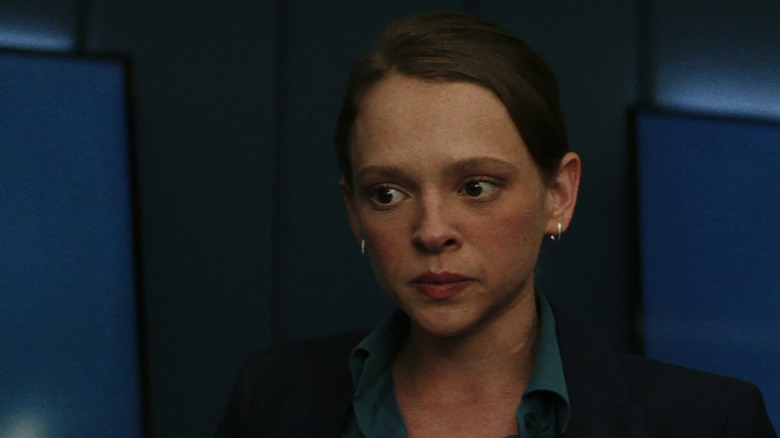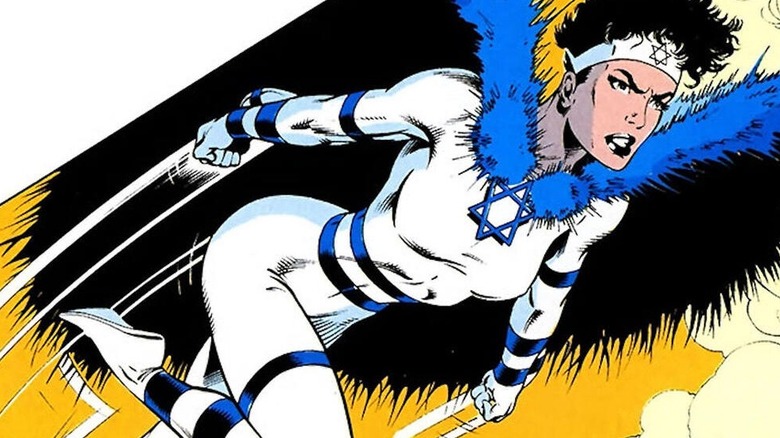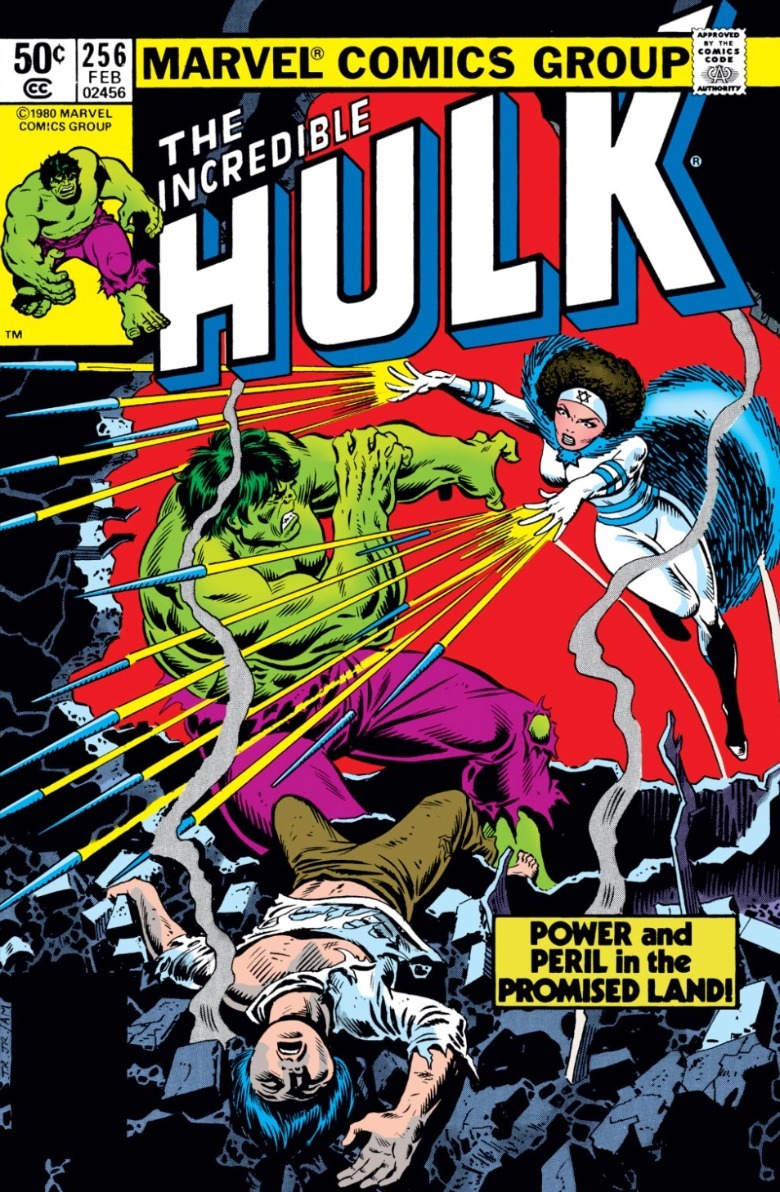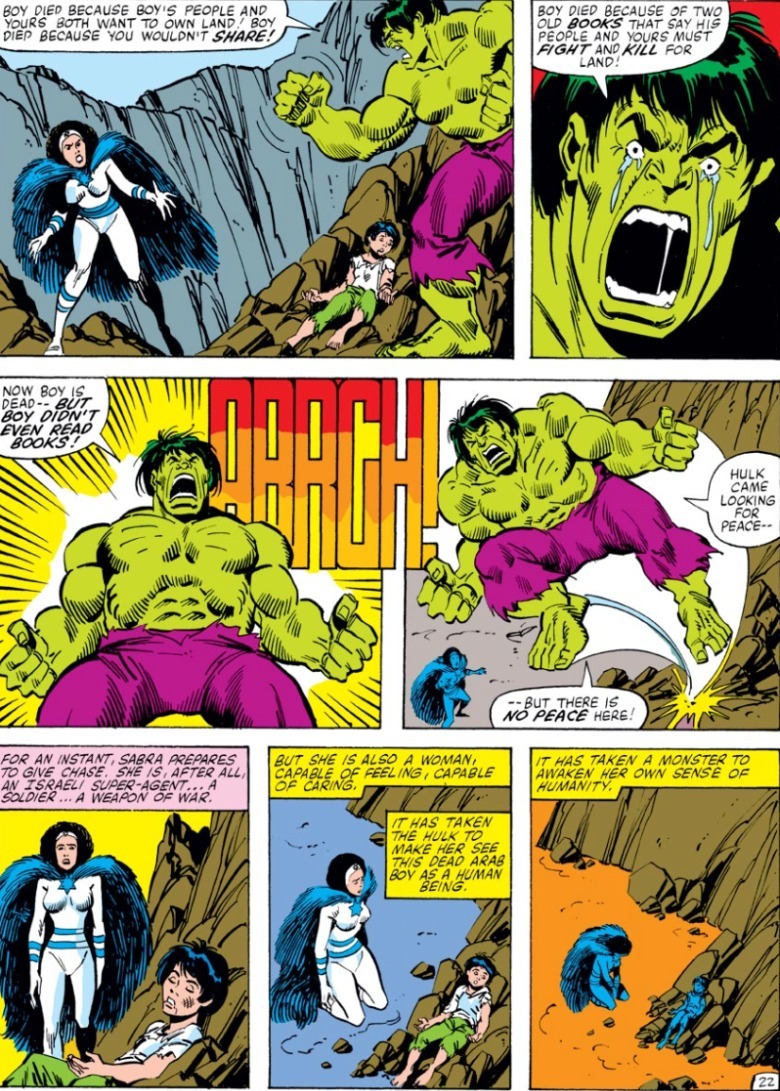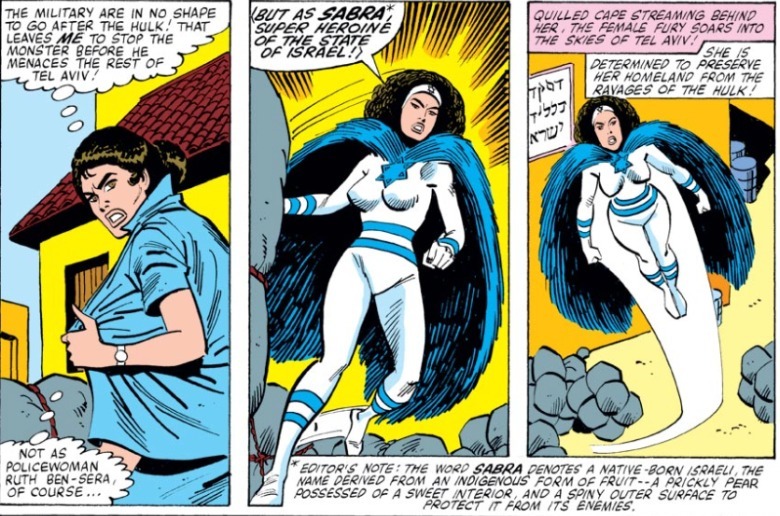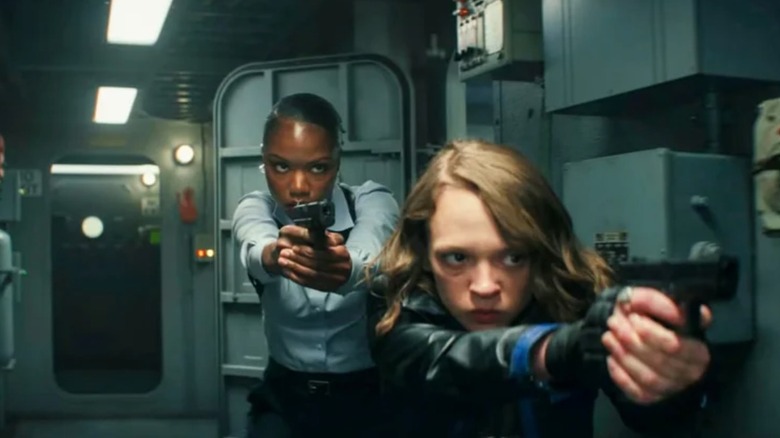Captain America: Brave New World Refuses To Engage With Its Most Controversial Character
Spoilers for "Captain America: Brave New World" follow.
Marvel Studios does not set out to court controversy, which makes "Captain America: Brave New World" such a puzzling film. Similar to previous TV series "Falcon & The Winter Soldier," the movie has a framework that seems inevitably political: Sam Wilson (Anthony Mackie), a Black man, has chosen to be Captain America, but finds himself at odds with his country and President Thaddeus Ross (Harrison Ford).
Then, the movie preemptively retreats from any message, saying we should trust our politicians, no matter how flawed they are, to follow their better angels in the end — an absurd theme for 2025. Compare how '70s "Captain America" comic writer Steve Englehart made then-President Richard Nixon into a super-villain at the height of the Watergate scandal. That took real conviction, the kind you'll never find in a four-quadrant blockbuster.
The biggest unforced error in "Brave New World" comes in a supporting character: Ruth Bat-Seraph (Shira Haas). In the film, Ruth is a CIA advisor to Ross and a former Black Widow. In the comics, though, she is a superhero called Sabra — who might as well be named "Captain Israel."
The movie reimagined Sabra to avoid touching the third rail that it brought itself dangerously close to. She's briefly said to be Israeli-born (as is Haas), but her nationality is basically a non-factor and she's not a representative of Israel in the film. "Brave New World" is playing the hits of "Captain America: The Winter Soldier," so Ruth is there to fill-in the role of the late Natasha Romanoff (Scarlett Johansson), the OG Black Widow.
Still, Marvel couldn't have timed Sabra's silver screen debut more poorly. The controversy over the Israeli government's destruction of Gaza (with bipartisan U.S. backing, it must be said), not to mention the deaths of journalists and aid workers, has sharply divided American opinion on the conflict.
"Captain America: Brave New World" was listed under Boycott, Sanctions, and Divestment (BDS), a protest movement seeking to end Israeli apartheid of the Palestinian people. Pro-Palestine protestors also attended the Los Angeles premiere of "Brave New World."
With this onscreen Sabra barely being tied to Israel, were the protests and boycott calls blown out of proportion? Not exactly, because Sabra can't be disentangled from the country she represents. Jewish-American journalist and comic critic Asher Elbein described Sabra as, "a perfect example of the perils of creating a flat nationalist hero as a fantasy stand-in for a very real, very ugly conflict."
Sabra is Marvel's Zionist superhero
Debuting in 1981, Sabra was the invention of Belinda Glass, then-wife of Marvel Comics writer/editor Mark Gruenwald. In her debut appearance, "Incredible Hulk" #256 (by Bill Mantlo and Sal Buscema), Bruce Banner stows away to Tel Aviv. When he gets there and Hulks out, Sabra starts pursuing the Hulk. Banner makes friends with a young Arab boy, Sahad, who is killed in a Palestinian terrorist attack. The Hulk schools Sabra over the cycle of violence and leaves her to mourn Sahad.
The comic's politics are facile "see the best in people," no different from "Brave New World" itself, but at least it acknowledged the reality of Israel/Palestine. (That said, it can't bring itself to impugn Israel to the same degree it does the Arabs.)
That reality is baked into this character. Her name, "Sabra," is slang for an Israeli-born Jewish person. It comes from a sweet fruit that has a prickly hide, a sentiment that Israel holds about itself; "the only democracy in the Middle East" needs to be hawkish to defend itself from surrounding enemies, as the debut appearance of Sabra implicitly claims:
Sabra is not only a superhero from Israel, she is a symbol that embodies Israel as a heroic force. Note how her costume is modeled on the Israeli flag, with white and blue colors and a Star of David shaped cloak pin. She is draped in the iconography of her country the same way Captain America is his. In "Brave New World," Sabra is briefly shown wearing a suit resembling her comic outfit, but it is concealed and only partly visible under a jacket. This is probably a stray thread left over from the film's numerous reshoots, but it aptly sums up Marvel's attempt to downplay the innate Zionism of Sabra in "Brave New World."
Why is Sabra in Captain America: Brave New World?
In the comics, Sabra is also a member of Mossad, the Israeli intelligence force; she works for Israel in the most literal sense. Sabra's powers were first said to be the result of the "Israeli super-agent program," hence her super-strength, flight and ability to shoot "energy quills." Then, a later retcon gave her a new origin: she's a mutant. She's never officially joined the X-Men, but she fought alongside her fellow mutants against Bastion during the '90s "Operation: Zero Tolerance" story.
This isn't simple worldbuilding. It ties back to Sabra's original ethos, because "X-Men" is strongly tied to Jewish identity. Stan Lee, Jack Kirby (the comic's creators), and Chris Claremont (the most important "X-Men" writer) were/are all Jewish. The way mutants face persecution (where "normal" people fear they'll be "replaced" by an infiltrating minority) mirrors antisemitic conspiracy theories.
Claremont wrote Professor X and Magneto's dispute about mutant rights to mirror ideological splits in Zionism, with Xavier being David Ben-Gurion (the first Prime Minister of Israel) and Magneto being Menachem Begin (founder of the right-wing, and currently in-power, Likud party). In 1981, the same year Sabra debuted, Claremont remade Magneto into a Holocaust survivor and, in effect, Marvel's most famous Jewish character.
Rumors suggest that Marvel Studios might be looking at Denzel Washington to play Magneto — which in turn suggests they could be rewriting his origin so he faced a different oppression, rather than the Holocaust. If so, that's a terrible decision, gutting the Jewish heart of Magneto in favor of "realism." (Yeah, no Holocaust survivor alive today is young enough to be a super-villain, but when has the Marvel Universe ever been known for realism? It's not like anti-semitism is a vanquished evil either.)
The flip side of that is trying to remake Sabra as not an Israeli avatar. I keep asking myself why Marvel Studios included her at all? She's a pretty obscure character to begin with, so it's not like the MCU was incomplete without Sabra. Since Haas' Sabra is so different, why not just adapt a different character for the film?
There is no way to adapt Sabra and satisfy everyone like Marvel always aims to, as seen by the storm of controversy "Brave New World" still stirred up even with its revised Ruth Bat-Seraph. Pro-Israel people who would probably appreciate comic Sabra might feel snubbed, while for Pro-Palestinians, her very presence in the film is a tacit endorsement of Israel — a country so supposedly noble it can have its own superhero.
"Captain America: Brave New World" is playing in theaters.
